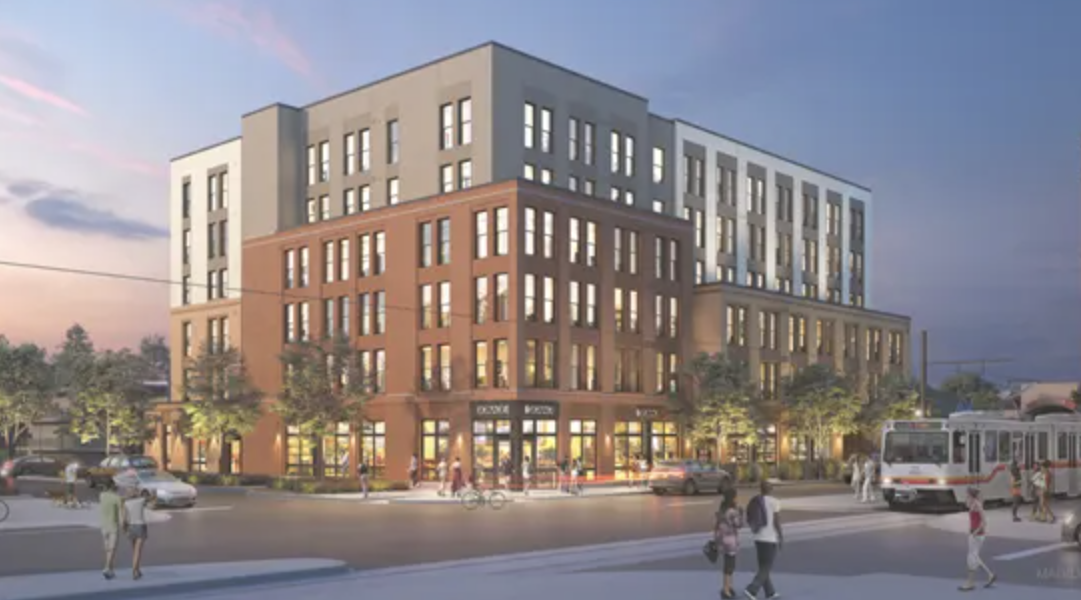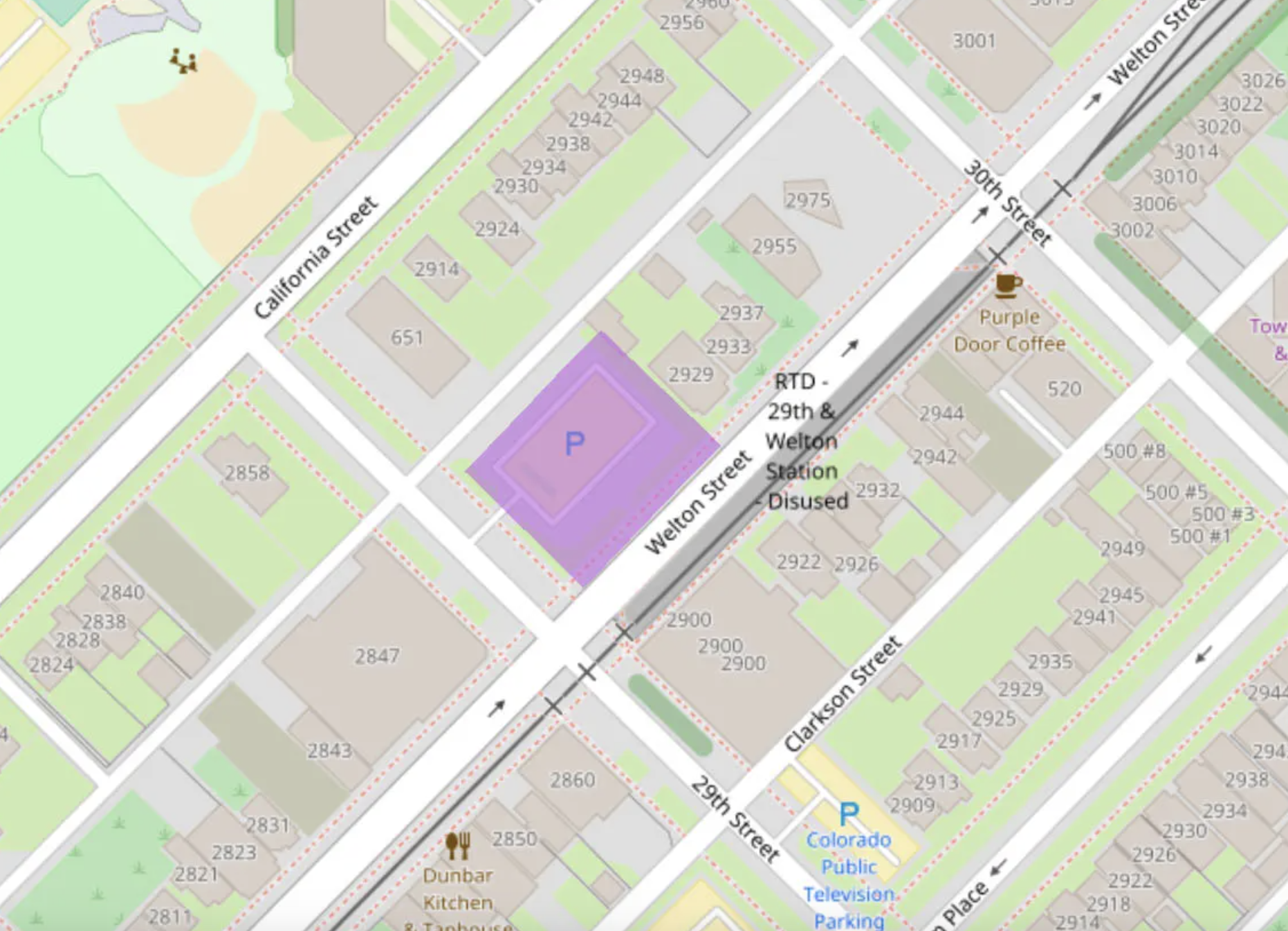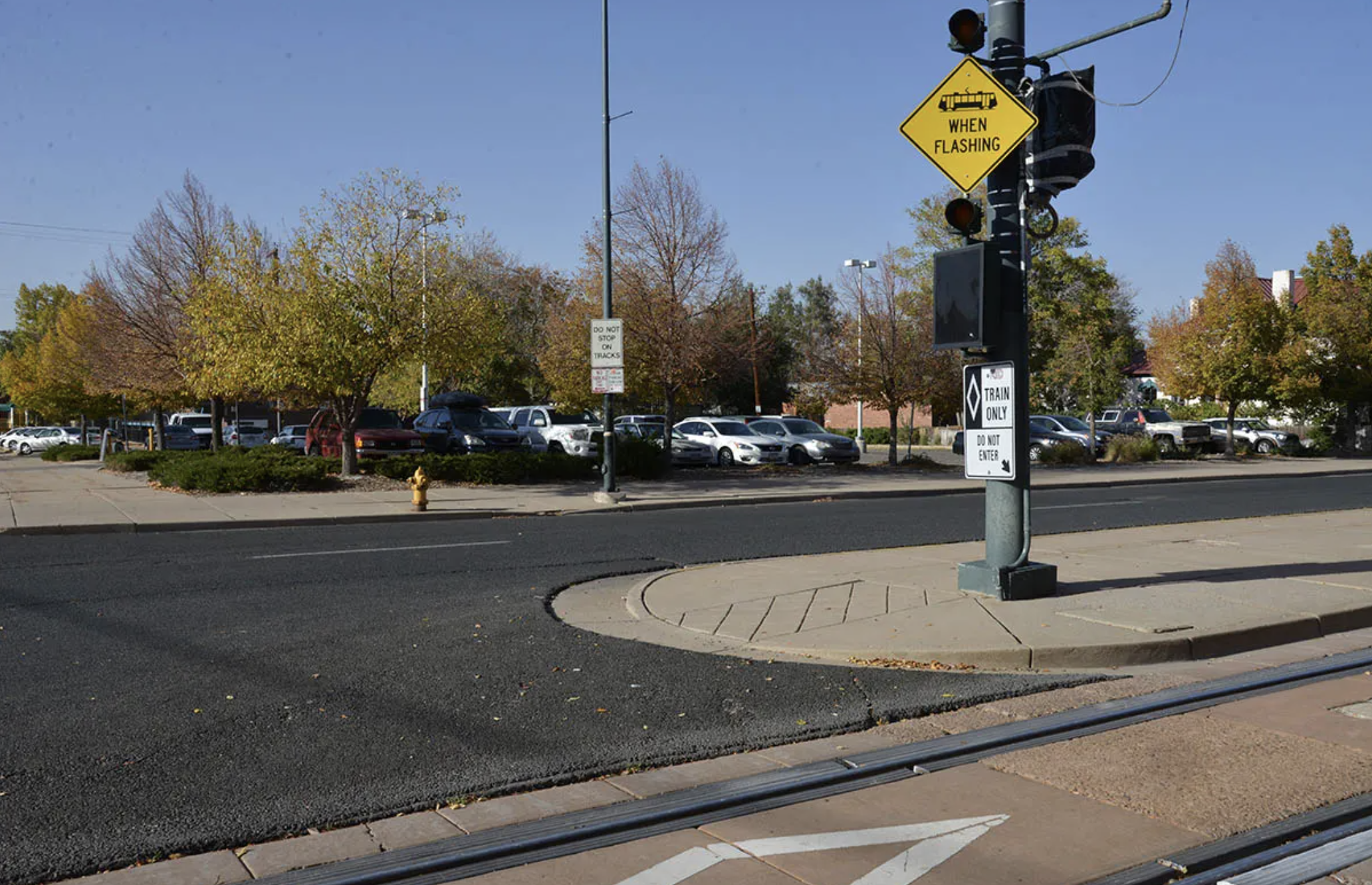
Regional Transportation District

Audio By Carbonatix
Denver City Council just greenlit almost $5 million to turn a Regional Transportation District parking lot next to the shuttered L Line light rail station at 29th and Welton streets into “permanently affordable” condominiums.
And what are permanently affordable condominiums?
It sounds like an oxymoron, but officials with RTD, the Department of Housing Stability (HOST) and Elevation Community Land Trust insist that it’s not.
“I wanted to understand how it stays affordable in perpetuity if you can capitalize on the equity, essentially,” Councilmember Shontel Lewis said ahead of the June 17 vote to approve the RTD lot conversion. Lewis, who represents District 8, was curious about how the area median income (AMI), a tool used to determine applicant qualification, would play into the project,
“For the 80 percent AMI…if I purchase one of these condos today and then in five years I sell it, is it still going to be 80 percent AMI for the person who then purchases it after me?” she asked. “And what happens to the equity for the individual who purchased it prior to?”
According to HOST, the six-story condo building going in at 29th and Welton will be made up of one- to three-bedroom units, all of which are income-restricted to households earning up to 80 percent of the AMI. For single-person households, that would be up to $71,900 and up to $92,400 for three-person families. Elevation – which has helped build affordable condos across the city in recent years through partnerships with Denver housing giants like Shanahan Development – will lease land and ground-floor community space on a renewable 99-year land lease, per city officials.

The RTD parking lot at 29th and Welton.
Regional Transportation District
Adam Lyons, HOST’s housing opportunity development director, told the council that initial and subsequent buyers will have to be maxed out at 80 percent AMI, but applicants can be lower than that “if they can qualify for a bank mortgage or bring with them some down payment assistance from some of the programs HOST funds.”
According to Lyons, Elevation typically prices condos at 70 percent AMI, and its usual buyer, on average, is just a little bit under that number. So this new project, funded by the American Rescue Plan Act and Denver’s Affordable Housing Fund, won’t be a stretch for the land trust.
When someone buys one of the new condos, they will be allowed to get “some” shared equity in their home as the years go on, but it’s ultimately capped to stop people from taking advantage of the system, Lyons explained.
“Elevation…in their land lease, they have a specific formula that kind of dictates how homes are resold and how those prices are set and how the equity is shared to that home buyer,” he added. “There is a cap [to equity]. That’s spelled out in [Elevation’s] land lease, and subsequent homebuyers will sign that lease as well.”
Lyons noted that, in any case, the next person who buys one of the condos would have to meet the 80 percent AMI requirement, and the sale price would still have to be affordable to them.
If, for some reason, Elevation or homeowners violate the terms of the lease or don’t perform or enforce what is being laid out, the city can enforce the provisions itself, whether that be years or decades from now, Lyons said.
“This is an amazing development,” said Councilmember Darrell Watson, who is a Five Points resident. “I know, from living in the neighborhood and [seeing] that empty lot for fifteen years, what this is going to do.”
Chessy Brady, RTD’s transit-oriented development manager, tells Westword that turning unused RTD parking lots and spaces into affordable housing is something the agency wants to do more of. Already, projects are being lined up and pitched for years to come, including one at RTD’s Central Park park-and-ride that would turn 650 spaces into “800 or so” units, according to Brady.
“That’s 1,400 to 1,600 people,” she says. “If those spaces are empty, like Central Park, where parking utilization is under 30 percent, then they are providing zero riders. If we can get 1,400 to 1,600 people living there, we know that number is going to be higher than zero.”
Another incentive for living in the affordable condos: People who own property in the buildings get a Neighborhood EcoPass, which provides unlimited rides on RTD buses and trains. Developers will be paying for the passes, according to Brady.

RTD says it’s looking to turn more of its empty parking lots and “disused” spaces into affordable housing.
Regional Transportation District
“It’s transit-oriented development,” she says. “We want buildings in places that get people onto the train or onto the buses. That means having low parking ratios, higher density and providing those transit passes.”
Brady says construction on the 29th and Welton condos is expected to begin this fall and will last around eighteen months. Owners should be moved into their units by mid-2026, she predicts.
HOST will provide a total of $1,605,000 in American Rescue Plan Act funds and $3,360,000 in Affordable Housing Fund cash to Elevation and Shanahan Development for loans for the project, which Brady says is needed more than ever right now as property costs rise annually and the amount of land available to buy keeps going down.
According to an October 2023 report by Up for Growth, Colorado is severely lacking in housing inventory and needs upwards of 100,000 new home units to meet the state’s housing demand. A 2024 report from the Common Sense Institute estimates that metro Denver alone could be at the same level of under-production.
“The region is in the middle of a housing crisis,” Brady concludes. “And although we’re not going to build our way out of it, what we can do is try to build as much income-restricted housing as we can to open up opportunities for families to stay in the region. Our land is particularly well suited for connecting people where they need to go and keeping their costs lower by avoiding owning a car. RTD has the opportunity to do that at transit stations, which gives people better access to jobs, to schools and other things in their lives.”